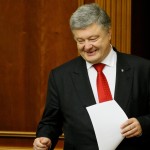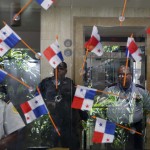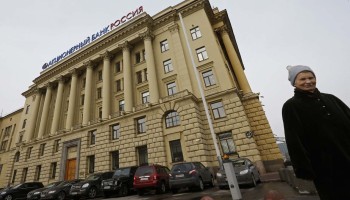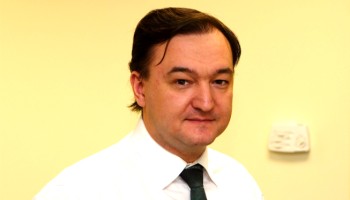Russian Federation President Vladimir Putin goes back a long way with his friend, Sergei Chemezov.
They worked together as young men in the 1980s, when Putin was assigned to Dresden for the USSR’s Committee for State Security (KGB). In fact, the young friends shared a house with other KGB officers in Dresden.
Now Chemezov is the head of Rostec, a giant state corporation formerly known as Russian Technologies. The military behemoth encompasses more than 700 subsidiaries that include Kalashnikov, the famous gun manufacturer as well as producers of helicopters, optics, equipment, and high-tech materials.
But while the Putin and Chemezov are old KGB friends, the next generation is also benefiting from those ties according to documents received by the German newspaper Süddeutsche Zeitung and shared by the International Consortium of Investigative Journalists (ICIJ) with the Organized Crime and Corruption Reporting Project (OCCRP) and more than 110 media partners from 82 countries.
The documents, dubbed the Panama Papers, show that Chemezov’s son, Stanislav, who, as of July 2010, owned a holding company named Erliglow Ltd. in the British Virgin Islands (BVI) that in turn owned a company in Russia that was seeking to build a national fiber optic superhighway system.
A second shareholder in Erliglow was Olga Aleshina, the daughter of Alexey Aleshin, the former deputy head of the Pre-Rostec Russian Technologies. While the project never got off the ground, the documents gives an inside look at the working of Putin’s inner circle of friends.
Erliglow owned shares in a company which owned shares of the Russian firm Svyazdorinvest, which was set up to design and build fiber optic lines in Russia. In 2009-2010, the Russian government agreed with Svyazdorinvest’s idea to bury a massive fiber optic network of trunk lines along the roads from Finland to Kazakhstan and on to China, according to comments in the press.
In 2010, Russian Technologies, headed by Chemezov, signed on to support the building of the network. The network was estimated to cost about US$ 550 million according to press reports.
That same year a company called Roselectronika, a subsidiary of Russian Technologies, got a 26 percent share of Svyazdorinvest. The rest of Svyazdorinvest, 74 percent, was hidden behind offshore companies including the Cyprus-based Paragolis Overseas, which was in turn owned by the BVI registered companies Bale Holdings and Caryn Properties.
Effectively, Chemezov bought into a company that became owned by his company and his son’s company.
As for Caryn Properties - its beneficiaries were not disclosed, but the Dmitry Protsenko was again listed as a contact person.
In a response from Rostec, the company acknowledges the connection between Chemezov and his son in Svyazdorinvest but said the problem was solved by internal compliance.
“In the absence of any direct link between the companies, Stanislav Chemezov did not have any impact on the project and was not involved in the project. However, after conducting internal mandatory compliance procedures and as a result of detailed examination of the deal for possible "affiliation", it was decided to withdraw Rostec subsidiaries from the asset,” and email from a spokesperson said.
Roselectronika sold its stake in the "Svyazdorinvest" in 2014.
Sharay, in an interview with Vedomosti, a Russian business daily newspaper, said he cannot discuss any persons involved in the deal. He said Erliglow no longer exists and he does not own Svyazdorinvest.
Initially, the government approved the project “Eureka”, but did not allocate funds to it. The idea was to exploit the geographical advantage of Russia by building a fiber-optic cable line taking the shortest possible signal path between Europe and Asia through Russia.
But in 2012 a law was passed in Russia, which prohibited state corporations from investing in infrastructure projects unless specifically approved by the government. The proposal would have to be approved by a number of ministries which made it difficult to get off the ground, Sharay said.
Arkadiy Rotenberg had been a major proponent of the project beginning in 2009. The current owner of Svyazdorinvest is EnPiVi Engineering, a Russian company linked to the Rotenbergs. According to a business partner of Arkadiy Rotenberg, he invested up to US$ 2 million of his money into the project, but then state support vanished and now Rotenberg will sell his stake in the company.
As to why Chemezov's son and Aleshin's daughter got stakes in the project, the partner said “it might (have been) good for the project’s development.” Erliglow was dissolved in August 2015 and Bale Holdings in June 2015.
Rostec said they made a small profit from their sale of their stake of Svyazdorinvest and made no investment in the company.







